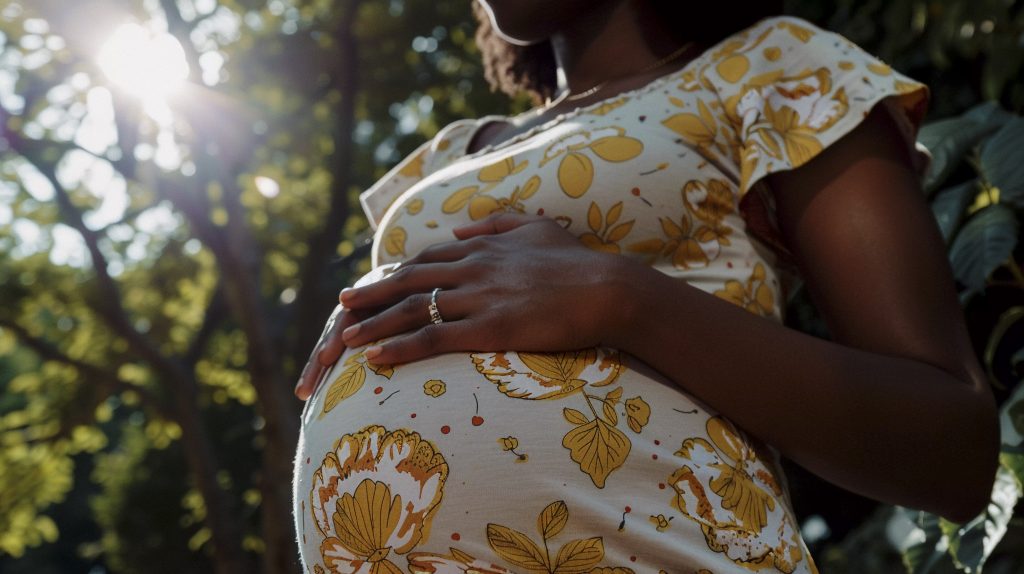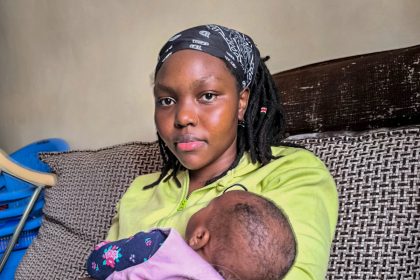Pregnant women can list endless unwanted comments, back-handed compliments and unsolicited advice like ‘drink Coke daily to ‘wash the baby!’
“As soon as I told my friend I was pregnant, the first thing she blurted out was, ‘No wonder your nose has become so big!’” June, 32, remembers wondering, “Of all the things you could have said, this is the one you chose?!”
Then there is Michelle, 29, whose first pregnancy, paired with a stressful postpartum period, had caused her to gain a lot of weight. Her second pregnancy was no different, and the Christmas holiday saw her husband convincing her to take a break in the countryside, where fresh air and a change of scene would be good for her. But alas! During one evening walk around the farm, one of her aunts, then busy milking cows, saw her and blurted out: “So what will you do about your weight once you deliver? You know your husband won’t stay if you continue gaining weight like this?”
Stella, 24, also recalls a surprise baby shower planned by her sister and best friend, but which was ruined by a work colleague who said: “You should start saying goodbye to your body and your career.”

The comment hit her like a bullet, considering she was in line for a promotion when she learnt she was pregnant. “I was excited to be a mum but also scared about the future of my career being a single mother.”
Many women who have been pregnant have such stories: Unwanted comments, back-handed compliments and unsolicited advice being the main players. Whatever the motive, good or bad, just bear in mind that pregnancy is already a stressful enough period – physically, mentally, and emotionally. So, here’s a list of 10 things you should not say to a pregnant woman:
- Pregnancy Nose: Avoid commenting on how large her nose is. During pregnancy, hormonal changes cause an increase in blood supply to the whole body and also cause fluid retention. These factors are responsible for the ‘pregnancy nose’. While it goes away some weeks after pregnancy, it tends to be a pain point for many pregnant women.
- Big Mama: Don’t mention her weight gain, I promise you, she knows. On average, pregnant women gain roughly 10-15 kgs during the pregnancy due to hormonal changes, with this figure varying according to individual and lifestyle factors. For most women, pregnant or not, the topic of weight makes them very self-conscious and anxious, and it’s best to avoid it.
- Deep-rooted myths: While some myths are funny and without harmful implications, others, like urging a pregnant woman to drink Coke daily to ‘wash the baby’, can cause her to be at risk of gestational diabetes due to the high sugar levels. Others, like certain medications that worked wonders for your baby, could also be harmful. Just allow her to get all the medical advice from healthcare professionals.
- Trauma Centre: Many women think they are helping by sharing their traumatic birth story or a traumatic pregnancy story they heard or read online, but this mostly induces anxiety in the pregnant woman. Instead, share positive and reassuring stories if the pregnant woman invites that conversation before jumping to the scary ones.
- Scaremongering: “Oh it’s your first? You’re definitely going to tear during delivery.” Since research has shown that a majority of women who deliver normally in the first pregnancy will tear during delivery, this comment causes a lot of angst in the pregnant woman looking to deliver naturally and makes her approach her birth with fear rather than with confidence.
- Dermatologists: Avoid commenting on her acne and hyperpigmentation. If you have ever struggled with acne, you know how much it kills your self-esteem. Now, compounding this with all the other changes happening to a pregnant woman’s body, it can be quite insensitive to point out her newly developed acne or how her skin has become riddled with dark spots.
- Fat fingers: “You better get that ring off before you swell all over and it can’t come out.” Fluid retention caused by hormonal changes, as mentioned earlier, causes swelling to occur in most women, particularly in late pregnancy, where they experience swelling of the feet, ankles and fingers. For many women, this is a concern as the shoes get tighter and rings could also feel tight and uncomfortable, and generally, negatively affect how they feel about their physical appearance.
- Headmaster: Commenting on how her hair will fall off after pregnancy. Postpartum hair loss is also a common occurrence due to the rapid drop in hormonal levels after pregnancy, particularly estrogen. While many women will experience postpartum shedding, the hair normally comes back to its natural state after a few months.
- The “just wait until” comment: “Just wait until labour and you’ll never want to have children again” or “just wait until your baby comes and then you’ll never sleep again”. While a lot of these ‘just wait until…’ are true, there’s no benefit in frightening the pregnant woman with all the negative changes she’s about to encounter. Also, chances are she is already thinking and is very anxious about them.
- Career ladder: Negatively pointing out how her pregnancy and maternity leave will limit career progression and promotions; just know she’s also thinking about how she will manoeuvre the workplace maze, including her return-to-work strategy.
None of this is to say you cannot say anything remotely negative to a pregnant woman. Many of the anecdotes shared tend to be very illuminating and informative. However, it’s important to, as they say, ‘read the room’. Say positive and encouraging things, by all means joke around with her and if she wants to go into the details of the points mentioned above, go for it but do it being cognizant of the fact that she is worried and stressed about all the changes happening to her, physically and otherwise. Overall, try to be supportive, kind and empathetic.
For pregnant women, if you have been on the receiving end of these comments, take heart. Remember, pregnancy is a journey that eventually comes to an end. More importantly, the journey is very different for everyone, so just because an aunt had a traumatic pregnancy and birth story, it does not mean yours will be the same.
Enjoy your pregnancy as much as you can, try to maintain low stress levels, good nutrition and gentle exercises for both your physical and mental well-being. Do not forget to go to your antenatal clinics, and in case of any issue, contact your healthcare provider. Seek support from trusted family and friends, and finally, do not let the comments get you down; you got this!
Dr Nyandia Maina is a medical doctor, creative writer and photo essayist.























